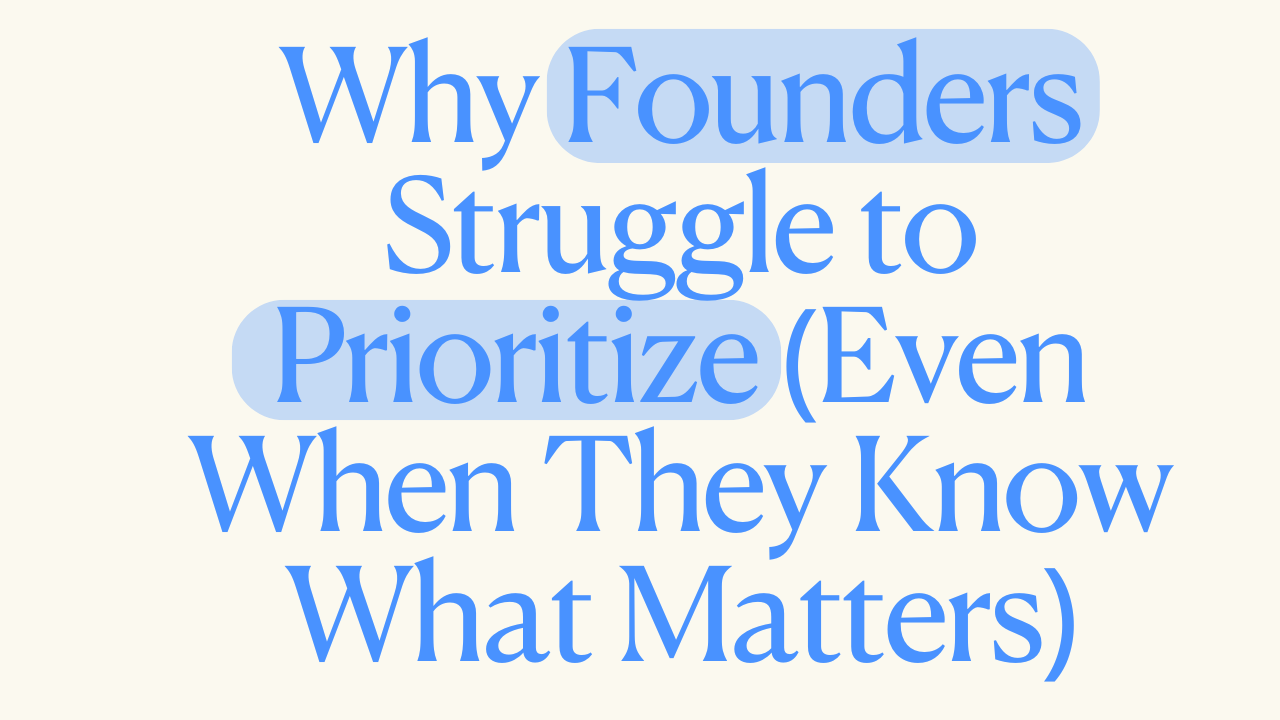From Tension to Trust: How to Strengthen Your Co-Founder Relationship
Startups don’t usually die because of bad ideas.
They die because of broken relationships.
On the outside, the company is still raising, shipping, and hiring.
But inside? Trust erodes. Decisions slow down. Resentment creeps in.
Most co-founder splits don’t happen in a dramatic blow-up.
They happen in silence. In the drift.
But it doesn’t have to be that way.
The strongest co-founder partnerships I’ve seen aren’t conflict-free — they’re intentional.
They do the work. And they stay current with each other.
Here’s what that looks like in real life:
- Define the “us” before you define the roles.
Too many founders skip the fundamental conversation: Why are we doing this together?
You each bring different fears, drivers, and visions of success. If those remain unspoken, they show up later — in conflict, in power struggles, or in quiet resentment.
Start here: What do we want from this company? What matters most to each of us?
When values align, most other things become easier to solve.
- Disagree early — not explosively.
Silence is the most dangerous pattern I see in co-founders. It creates space for assumptions. And assumptions breed distance.
The best co-founders have regular tension-clearing rituals.
Monthly walks. Friday check-ins. Even a shared doc where they log frictions before they escalate.
Conflict isn’t the enemy. Delayed conflict is.
- Don’t let equity write the org chart.
Just because you’re equal owners doesn’t mean you should have the same responsibilities.
The fastest-growing teams design roles based on strengths, not symmetry.
That means one of you might drive product, while the other runs GTM. Or one might move into a strategic founder role as the team scales.
Fair doesn’t mean identical. It means clear, respected, and agreed upon.
- Acknowledge that everything changes — including you.
You won’t be the same two people you were at Seed when you hit Series B.
Roles evolve. Needs change. Time gets scarce.
Strong co-founders name that out loud. They ask: Is this still working? Do we need to shift anything?
The relationship itself needs room to grow. Otherwise, it outgrows you.
- Bring in support early.
You don’t wait until the bank account is empty to call your CFO.
So don’t wait until your relationship is on the rocks to get help.
A coach. A therapist. A neutral advisor.
Not because you’re broken — but because you’re building something that matters.
And alignment is too important to wing.
Here’s the thing I wish every founding team knew:
Trust isn’t something you either have or don’t.
It’s something you build, maintain, and protect — together.
If your co-founder relationship feels strained, it doesn’t mean you’re doomed.
It means you’re at a fork in the road.
And I can help you navigate it.




